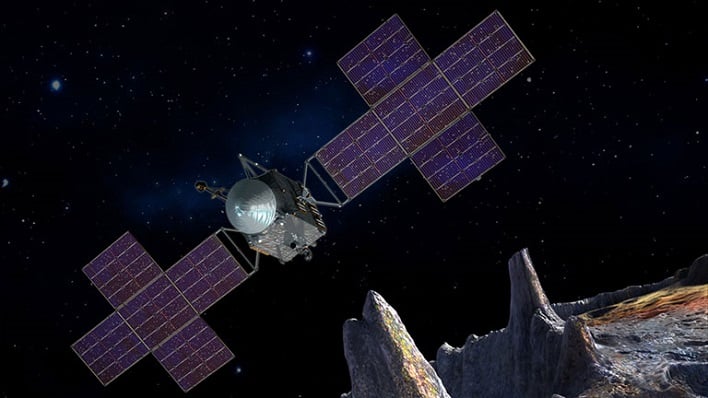NASA Greenlights Psyche Mission To Explore A Metal-Rich Asteroid Worth $10,000 Quadrillion
The mission, aptly named after the metal-rich asteroid valued at $10,000 quadrillion, aims to launch a spacecraft to study the asteroid that is about three times farther away from the Sun than it is from Earth. In November 2022, the independent review board made comprehensive recommendations meant to address issues that contributed to the delay. The same board has found that the Psyche project, JPL, and Caltech, which manages JPL for NASA, have exceeded expectations.
"I am pleased with the independent review board's resoundingly positive assessment of JPL's hard work in correcting the issues outlined in the board's original report," remarked Nicola Fox, Associate Administrator of NASA's Science Mission Directorate in Washington. "We know the work is not over. As we move forward, we will work with JPL to ensure these implemented changes continue to be prioritized to position Psyche and the other missions in JPL's portfolio for success."

Part of the response by JPL was to directly address the concerns in terms of the Psyche project as well as the laboratory as an institution, according to a blog from NASA. The team added additional experienced team members, reorganized a large portion of its workforce, and adopted comprehensive metrics to monitor progress toward launch and operational readiness. With all the implemented changes, the report indicated an improvement in the senior management's oversight of the mission.
Asteroid Psyche has a diameter of around 140 miles (226 kilometers), or about one-sixteenth the diameter of Earth's Moon. The Psyche spacecraft is targeted to travel to the asteroid using solar-electric (low-thrust) propulsion, following a flyby of Mars and a gravity assist. Once the spacecraft arrives at the asteroid, it will map and study the asteroid using a multispectral imager, a gamma-ray and neutron spectrometer, a magnetometer, and a radio instrument (for gravity measurement). The overall goal of the mission is to find out whether asteroid Psyche indeed has the core of a planetesimal.
All the independent review board findings and the changes implemented by JPL and NASA can be transferred to other projects, like the Europa Clipper and Mars Sample Return.
JPL Director Laurie Leshin, who convened the board just weeks after taking the position, explained, "Our goals went beyond getting Psyche to the launch pad to improving JPL across the board as we work on missions that will help us better understand Earth, explore the solar system and the universe, and search for signs of life." She added, "Our strong response to the board's findings reinforces the notion that JPL can solve any problem with the right focus and attention."


